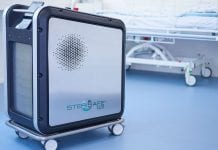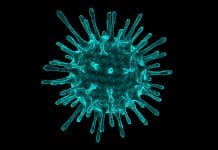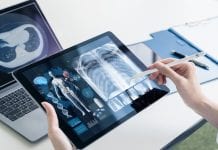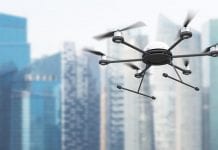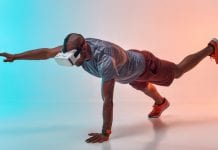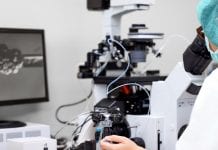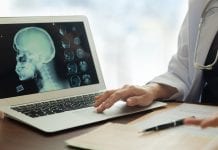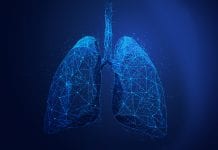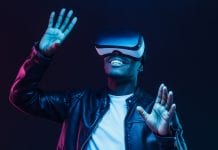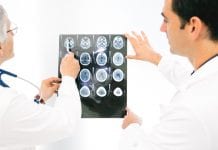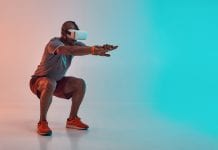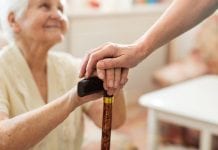Health Technologies Related News
Understanding ozone disinfection technology with STERISAFE
Ozone disinfection technology has received increasing attention – but how do we separate the wheat from the chaff?
The current COVID-19 outbreak has prompted a...
Global hackathon launched for COVID-19 technology solutions
Developers from across the globe are competing in the Better Health Hackathon: #CodeforCOVID19 to crowdsource technology innovations to help find solutions to tackle the...
Alder Hey Children’s Hospital harnesses innovative healthcare
Alder Hey Children’s NHS Foundation Trust will be utilising innovative healthcare delivery with the use of Insight’s Fast Start service and Microsoft’s mixed reality...
TIYGA: the voice of the Patient
WHO defines empowerment as “a process through which people gain greater control over decisions and actions affecting their health” (WHO 1998). This shift is...
COVID-19 and the role of mobile health technology
Mobile health technologies are a viable option in monitoring COVID-19 patients at home, and to predict who will need medical intervention, according to new...
Safeguarding skin cancer services with the use of teledermatology
Dr Amy Poyner, a GP on the Isle of Wight with a special interest (GPwSI) in Surgical Dermatology, highlights how using the Dermicus Teledermatology...
Smart disinfection technology in the spotlight
HEQ looks at smart disinfection technology which may help prevent the spread of COVID-19.
The COVID-19 pandemic has triggered the launch of a number of...
Buddy Healthcare: innovating care pathways in 2020
Markus Lind, Chief Sales Officer at Buddy Healthcare, shows how surgery clinics can restart elective surgeries safely and automate care co-ordination processes.
As the global...
Virtual physiotherapy is just as effective as in-person treatment
A new study of 27,000 virtual physiotherapy patients has concluded that digital physiotherapy must become a significant part of the treatment mix post-COVID-19 after...
AI-assisted technology for preventing falls could reduce burden on NHS
An AI-assisted remote monitoring and telehealth platform which predicts and prevents falls in the elderly could help reduce the burden on the NHS.
According to...
Person Centred Software: developing the care home of the future
Health Europa Quarterly speaks to Person Centred Software’s co-founder and director Jonathan Papworth, about developing the care home of the future, and why care...
AIVF deploys technology and innovation to boost reproductive science
AIVF’s CEO Daniella Gilboa, CCO Amir Lewkowicz, and VP of Product Ido Hershkovitz tell HEQ how technological innovation affects IVF practitioners and patients.
Reproductive innovation...
Telestroke: modifying stroke care in the age of COVID-19
As COVID-19 limits how patients are cared for, healthcare workers will need to modify their approach to stroke care, such as introducing ‘telestroke’ –...
Virtual care in the age of COVID-19 and beyond
Two, newly published articles have provided insights into the use of virtual care during COVID-19 and how the lessons and transformations can benefit healthcare...
Discover how AI is helping us understand cancer risk in the lungs
Deep learning Artificial Intelligence (AI) algorithms could be utilised as an unbiased assessment tool to help clinicians with assessing risk of lung cancer.
A new...
Could virtual reality ease the burden of coronavirus isolation?
New research highlights how virtual reality could help ease the burden of the coronavirus crisis.
Social isolation can have a huge psychological impact. A new...
Brain cancer patients could avoid biopsies thanks to Artificial Intelligence
In the future brain cancer patients may no longer need to undergo biopsies thanks to Artificial Intelligence (AI).
Brain cancer patients may be able to...
VR technology and 3D capture could allow physiotherapy at home
Physiotherapy could now be completed at home thanks to the combination of Virtual Reality and 3D technology.
Researchers have combined Virtual Reality (VR) and 3D...
New tool can help predict risk of death for dementia patients
A new tool has been designed that can predict risk of death for dementia patients, as well as potential admission to a long-term care...
Super-sensor chip offers a solution for socially distanced health monitoring
The future of socially distanced lung and heart health monitoring could lie in an inconspicuous yet incredibly sensitive microelectromechanical systems (MEMS) chip.
Scientists have developed...


